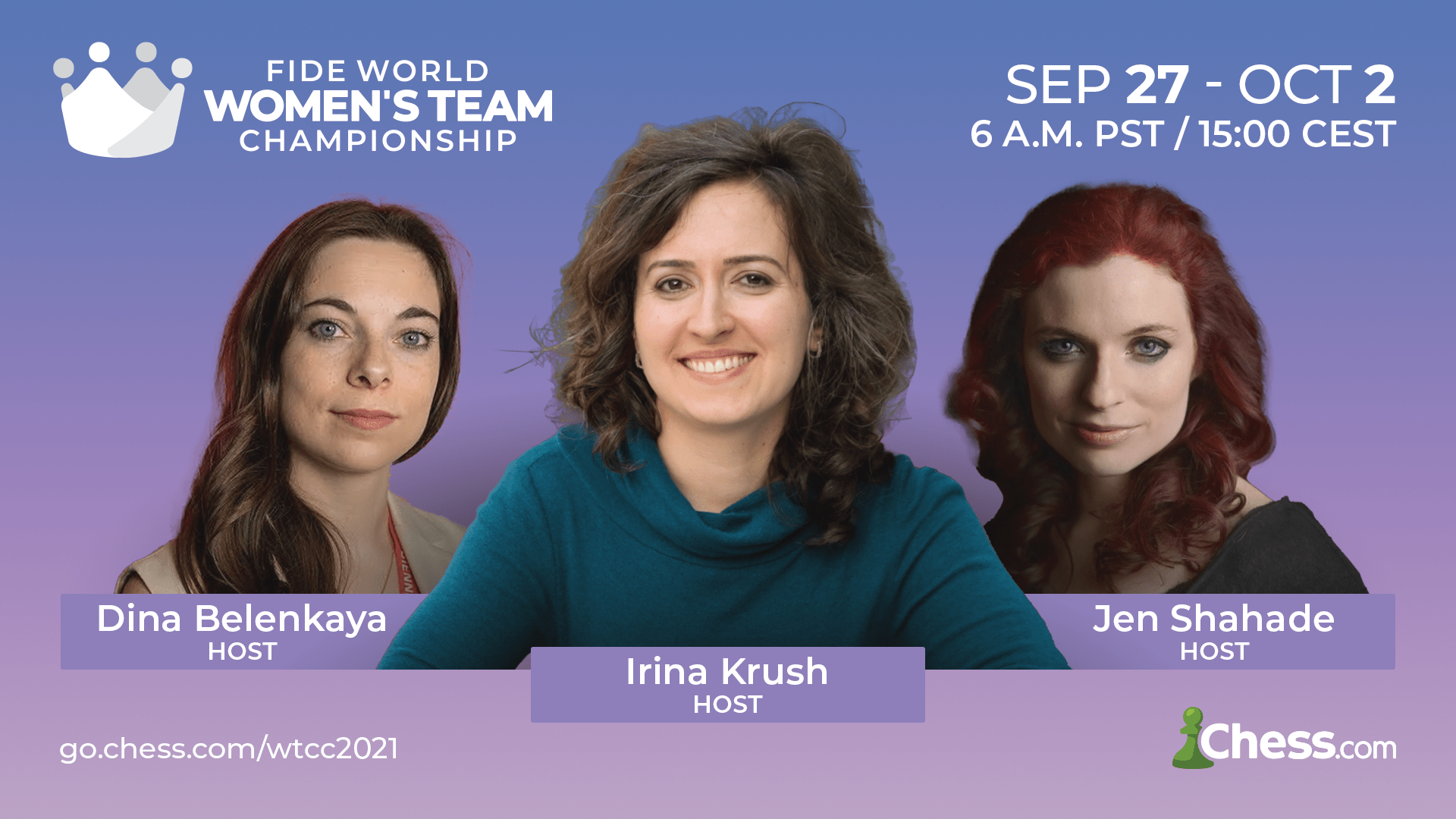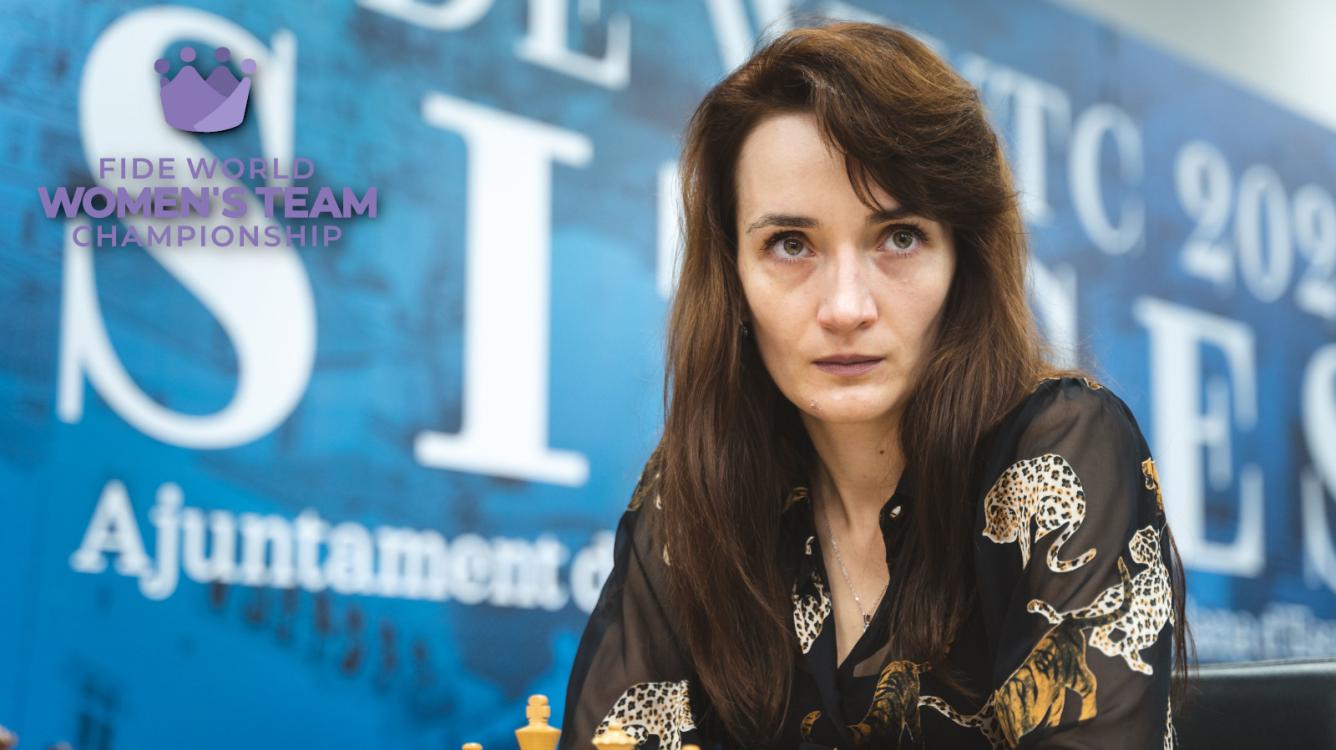
FIDE World Women's Team Championship Final: Russia Wins Gold In Victory Over India
Russia has defeated India 2.5-1.5 and 3-1 to confidently triumph in both rounds of the finals of the World Women's Team Championship that concluded in Sitges, Spain. If the semi-rapid event can be considered for historical continuity, this victory is the second for Russia in the championship after its earlier win in 2017.
For the first time in the event, India wins a medal, a silver—a creditable reward for the team's fine run in the tournament until the finals. India had lost just one match in the entire tournament until the finals, again to Russia in their Pool A encounter in the fourth round of the league stage.
Early difficulties on boards with the black pieces cost India dearly in both rounds, as they burdened players on other boards with pressure to score, and the team could not recover. GM Kateryna Lagno came up with a stellar performance for Russia winning her games in both rounds, exhibiting reliability much needed in a team event. GM Dronavalli Harika with the black pieces defeated GM Aleksandra Goryachkina on the top board in the first round, which was the only bright spot for India in the finals.
The FIDE World Women's Team Championship games can be found here.
Live coverage of round one. Watch all of the live coverage at youtube.com/chess.
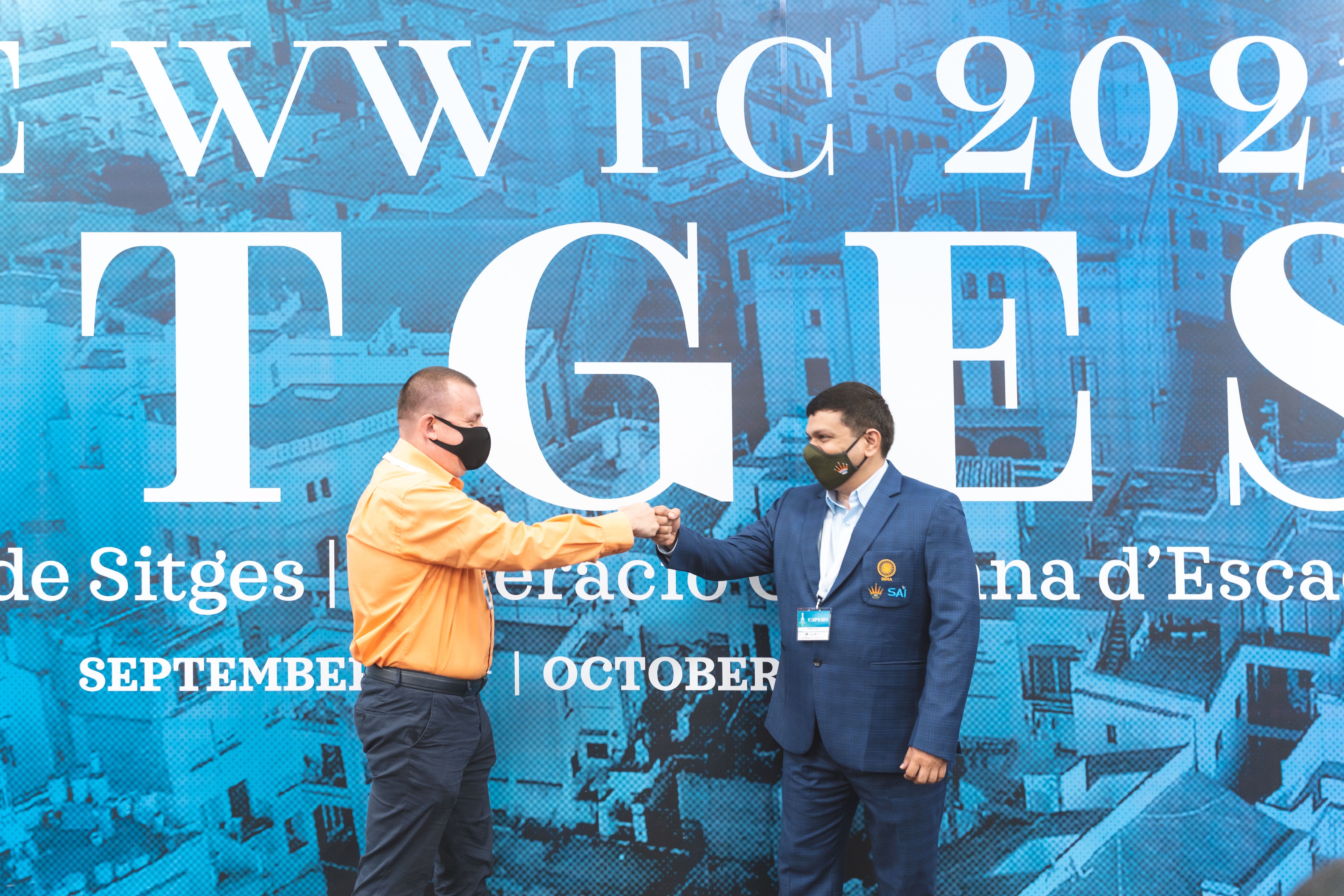
Russia started the finals as the favorite, with three grandmasters among its ranks and superior Elo rankings on all the boards. However, as in most sports, the sum of individual strengths of a team's players doesn't always equal its total, and India could be optimistic because its players had shown fighting spirit and resourcefulness until reaching the finals.
Round 1: Russia beats India 2.5-1.5
Just as the games moved into the early middlegame, the first round of the finals started looking evenly poised for both teams. Russia had an advantage on the third board through Lagno who seemed to have developed a good initiative right out of the opening against IM Bhakti Kulkarni, from a fashionable variation of the Caro Kann Defense. On the fourth board, WGM Mary Ann Gomes seemed to have developed a good positional edge against IM Alina Kashlinskaya from a slow Reti Opening.
The other two games looked evenly poised. On the top board, Goryachkina was surprised with a pawn sacrifice variation by GM Dronavalli Harika. WGM Vaishali vs. GM Alexandra Kosteniuk seemed to be on a level footing. So, there were boards to be both happy as well as worrisome for both the teams!
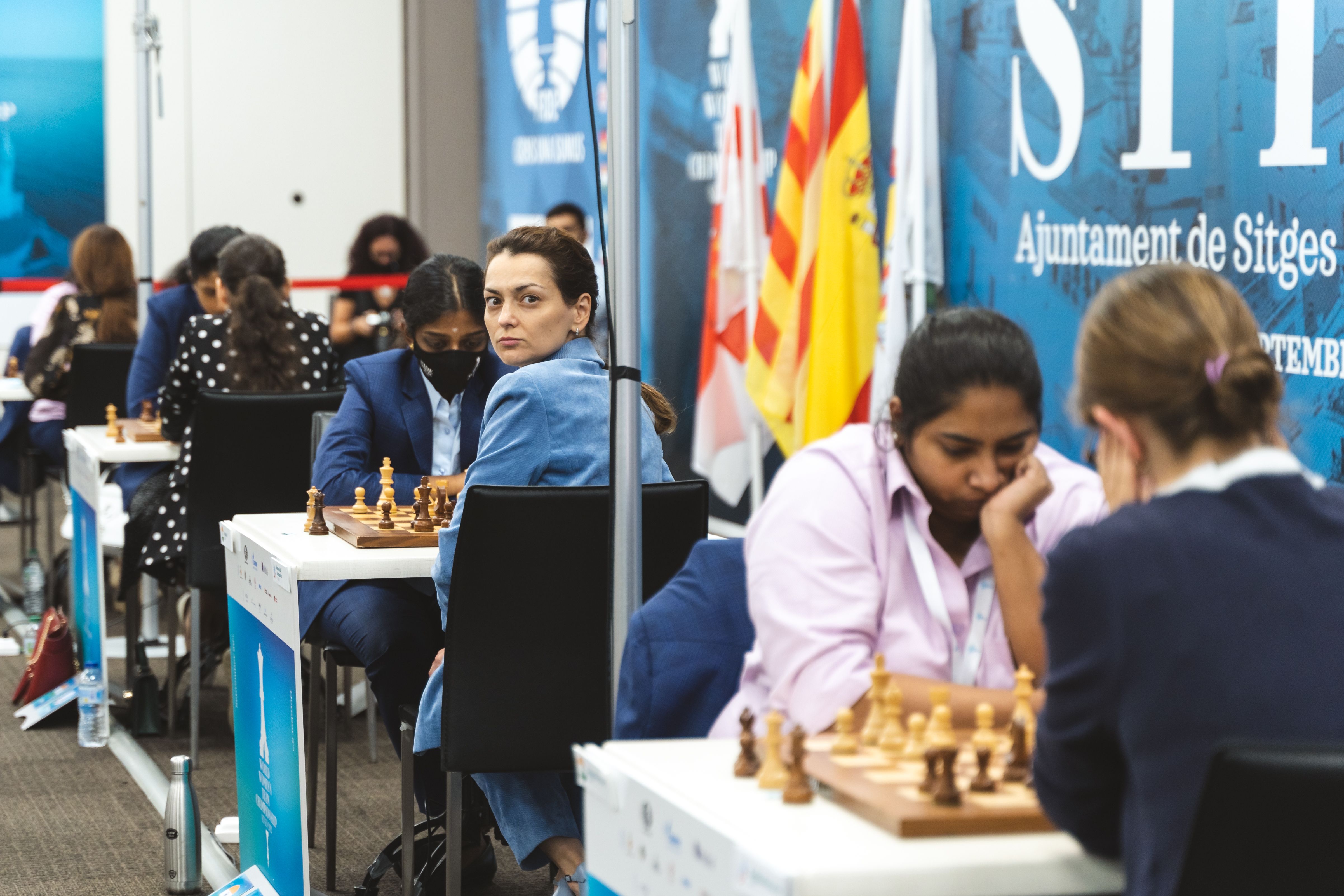
When there were no computers to teach chess opening theory, some openings had been branded as "unsound" by chess experts, mainly due to the pawn structures arising out of early middlegames. The variation of the Caro-Kann Defense employed by Kulkarni against Lagno—4...Nf6 5.Nxf6 exf6—had been condemned as "bad" even as late as the 1980s. But the variation has been spruced up and presented as playable in the past few years, thanks in no small measure to deep preparation with chess engines, though still looked at with a tinge of skepticism. But it wasn't a real surprise that Kulkarni adopted it for this game, as many top Indian players have employed it.
Also, in team championships, when stronger teams (in terms of Elo or otherwise) wish to outwit the opposition without taking much risk, the tendency is to "keep control" and keep it simple: play solid, sound openings with both colors and adhere to the principle, "Win with white pieces and draw with black pieces." Working the logic from the reverse, lower-rated opponents tend to play sharper openings—even if they aren't entirely sound—to provoke "stronger" players into playing more tactical and sharper to create chances.
Kulkarni tried to play actively with black pieces, but her opening play backfired fast. As the game progressed, it was obvious that Lagno had developed a serious advantage: Black's pawn advances on the kingside looked premature:
This game quickly unraveling to be difficult for India, Gomes seemed the best bet for an equalizing win, to build up her early middlegame advantage, and to push for a victory against Kashlinskaya:
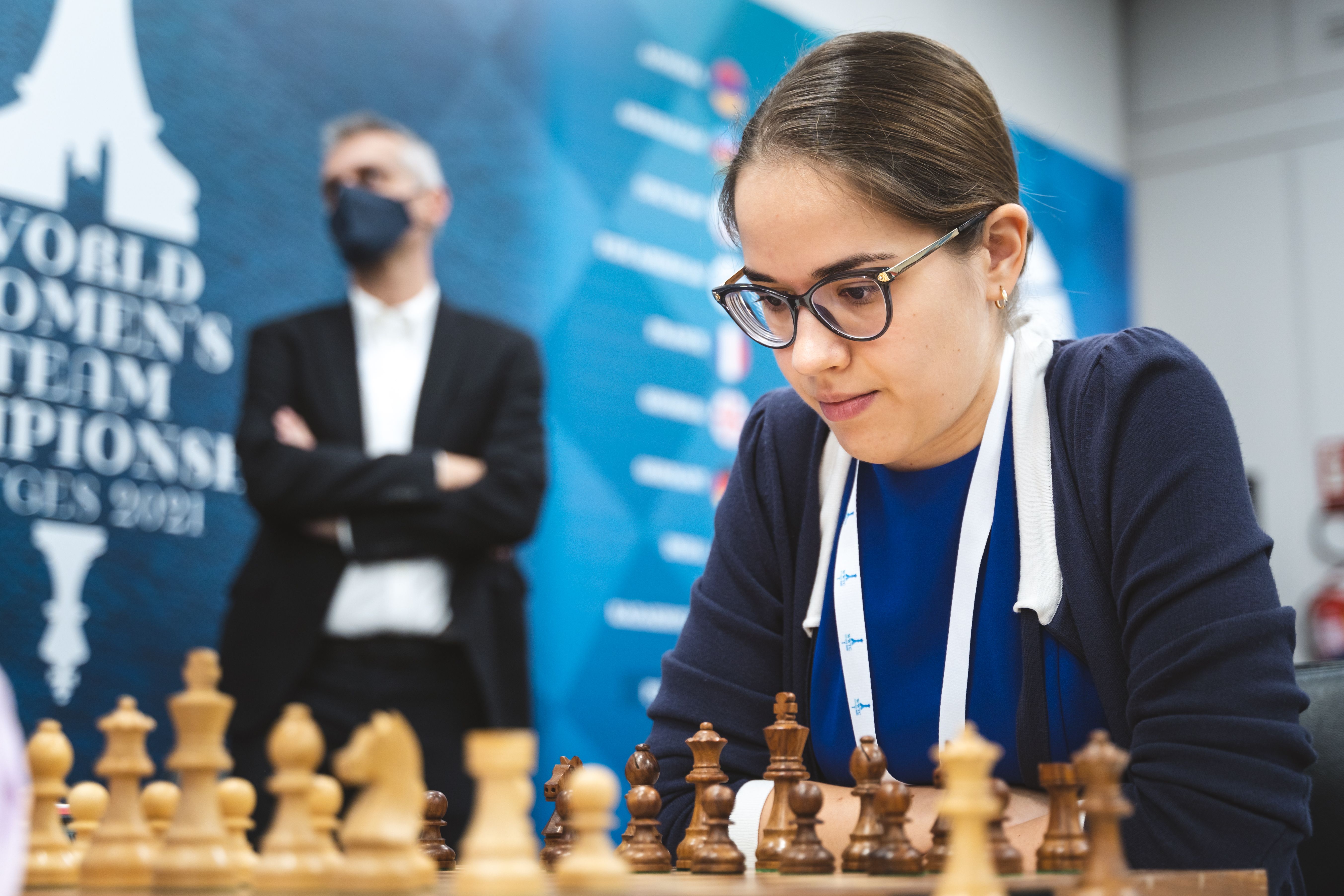
By this time, Vaishali's game looked to be inching towards a draw, as the ending didn't seem to possess any particular danger for White. But she blundered with a tactical oversight:
Curiously, in the league stage, Vaishali had also blundered in an ending with rooks and a minor piece and lost to Kosteniuk.
With Kosteniuk's game being the first to finish, Russia's victory seemed inevitable, as Lagno held a huge advantage against Kulkarni. But Harika's fighting spirit brought a creditable victory over Goryachkina.
Harika is the mainstay of this Indian women's team, being the only grandmaster and Elo topper. Fresh from her excellent showing in the Online Olympiad just a couple of weeks ago, she has been the main anchor of the Indian team in the absence of GM Koneru Humpy. Her game against Goryachkina seemed to be an even contest, as Harika employed a sharp opening variation:
One can only speculate that fatigue was the reason for Goryachkina's collapse in the game with the format forcing the players to play more than a dozen games in just six days.
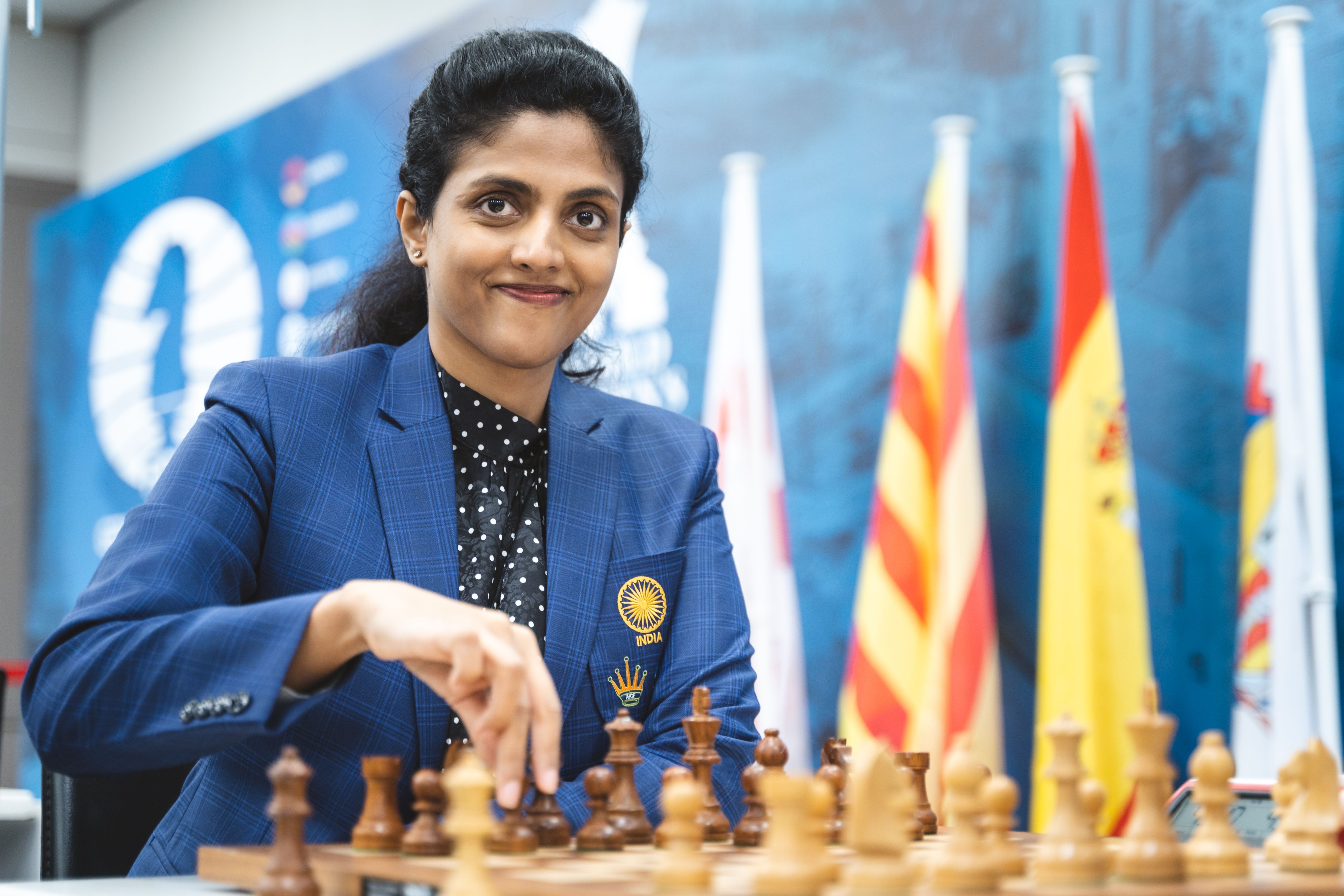
Round 2: Russia beats India 3-1
With India desperately needing to win the second round to force a tiebreak, things didn't start well for them. Opening choices with black pieces seemed to be a recurring issue for the team, as IM Polina Shuvalova on the fourth board quickly exposed difficulties in Gomes' Kan variation of the Sicilian Defense. Once again, just as with Kulkarni in the first round, the difficult position that Gomes faced early in the round resulted in pressure on her other teammates:
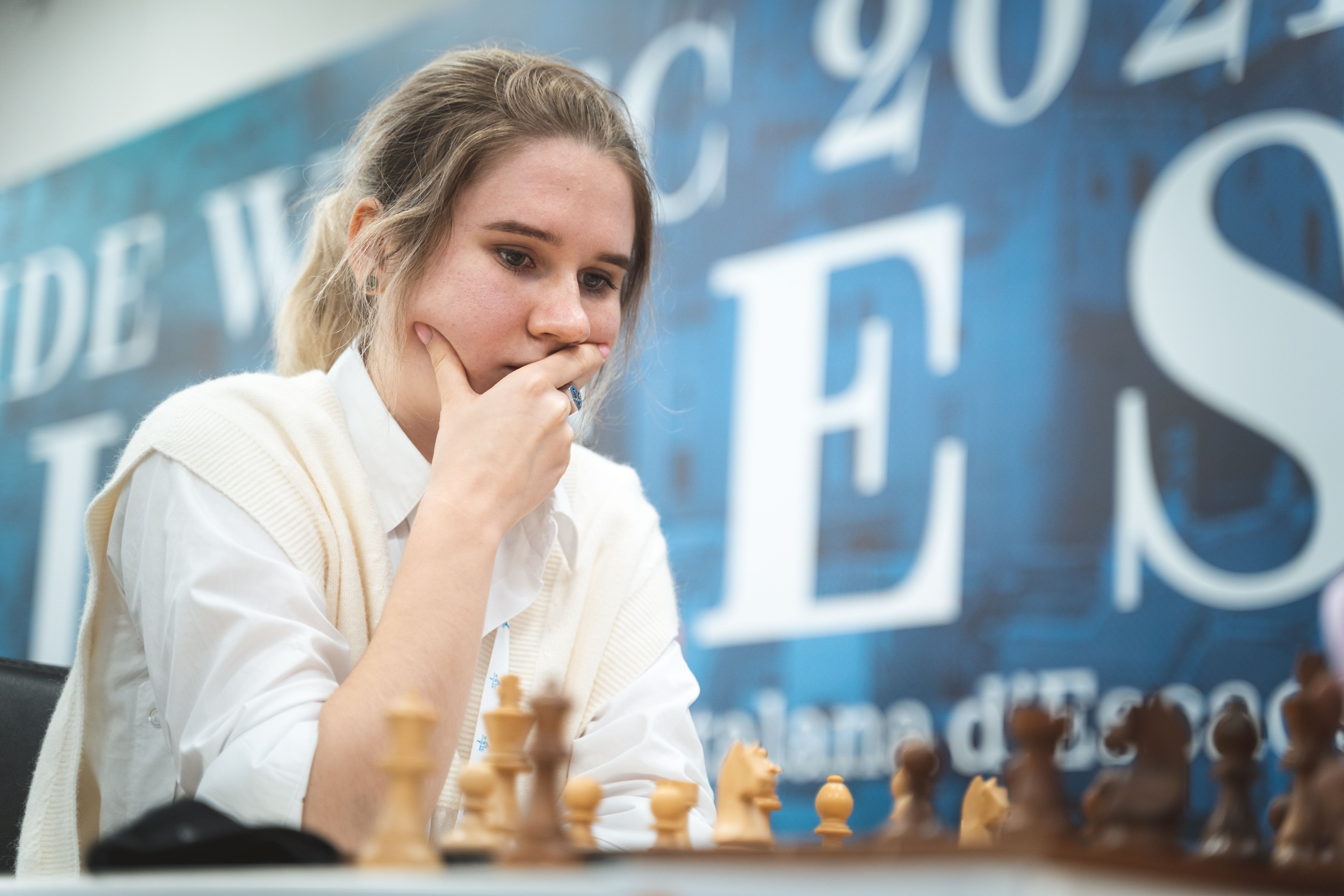
Even before Shuvalova's win was achieved, Kosteniuk-Vaishali had ended in a relatively quick draw. On the top board, in a reversal of fortunes, Harika survived anxious moments throughout the game:
With the gold medal for the team almost in sight, Lagno played steadily in the long and final game of the event and even punished IM Tania Sachdev for pushing too hard in a quest to win for the sake of the team:
All games - Finals
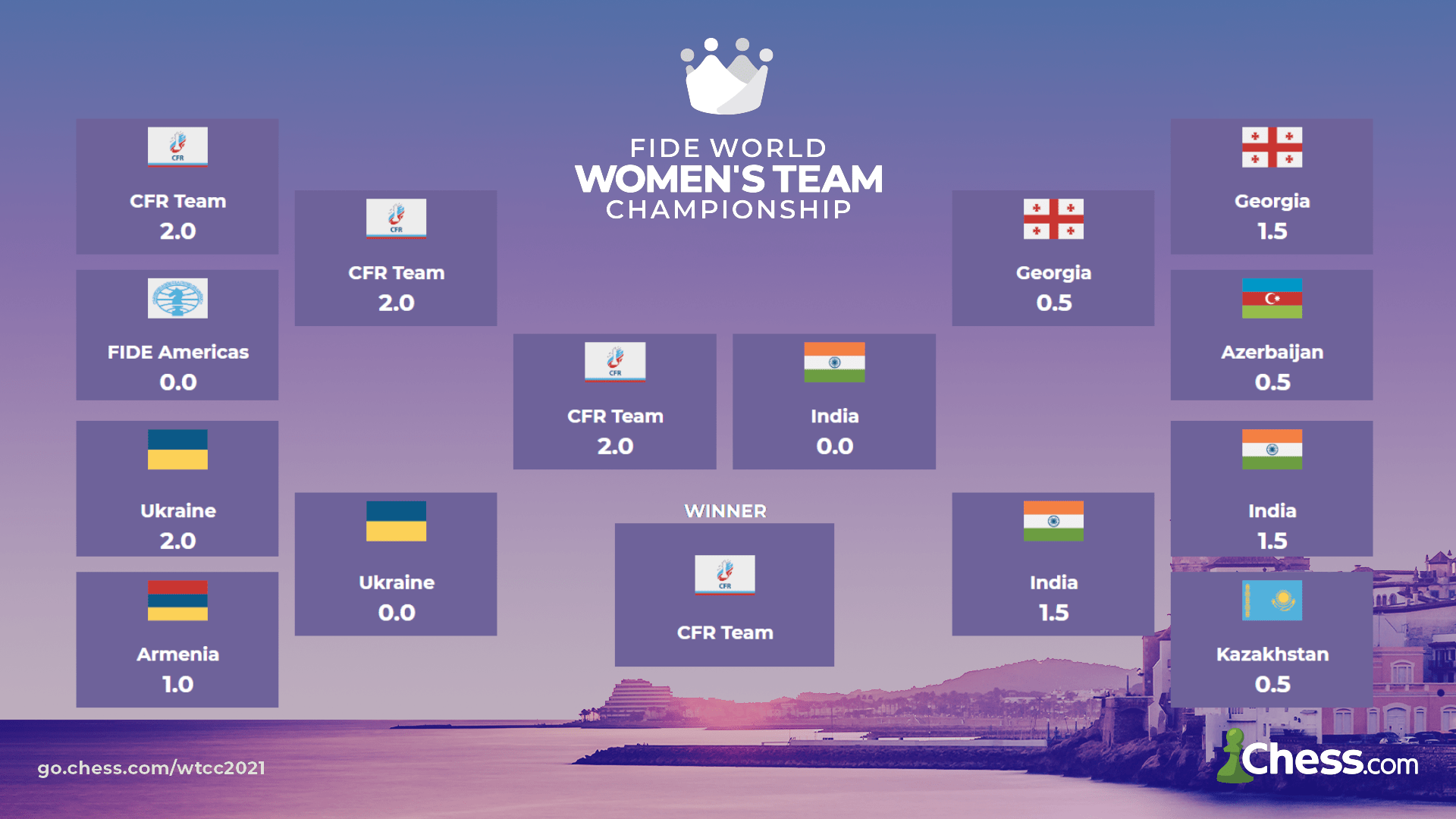
The 2021 FIDE World Women's Team Championship was a 12-team event featuring teams representing chess nations around the world. The event ran from September 27 to October 2 and was broadcast on Chess.com.
Related:
